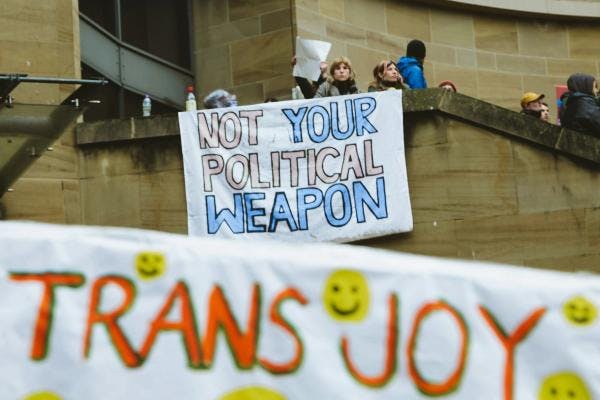Thiago Rocha - Unsplash
En quoi les soins fondés sur l'affirmation du genre relèvent de la réduction des risques
Une approche globale et inclusive en matière de réduction des risques doit répondre aux besoins spécifiques des personnes transgenres. Pour en savoir plus, en anglais, veuillez lire les informations ci-dessous.
The nature of the trans experience for me, and many, is of being forcibly politicised from a young age. Our existence is debated by people with little understanding of it, and often with no consideration for our lived realities. This is especially relevant now, as we find ourselves in the midst of a culture war that none of us asked to be part of. I find it important to share my own experiences and those of my community.
There is a significant lack of research into our community’s use of drugs. My own experiences as a queer person have always impacted what, how, where and why I use drugs. When I first came out as a transgender woman and made my first, formative steps into the world, drug-using spaces and people who use drugs were among the first to accept me as a woman.
My initial experiences of using drugs were that of immense joy, not just because of the substances, but also because I was so welcomed and loved, something I rarely experienced before. This experience also gave me the confidence to be unapologetic about my existence and live life as I am now.
The intersections of my experience as a trans woman who uses drugs also had negatives. The joy and acceptance are impacted by intensely traumatising elements of the trans experience which reverberate across my life. Harassment and assault have led me to change the way I use drugs, using them with far less regard for my own wellbeing, and instead to treat the intense dysphoria I have felt for many years.
Gender dysphoria is something with a very effective and direct, if often inaccessible, treatment. The denial of access to this treatment (which has a lower regret rate than other medical interventions) led me to self-medicate with drugs to cut through the intense fog of dysphoria from being forced to live in a body I felt a disconnect from and active hatred towards. Since accessing gender affirming healthcare, my drug use has changed drastically: I no longer need to self-medicate. I’ve developed a sudden connection with myself, my body, and a renewed sense of care for my own wellbeing. I can now use for enrichment and joy, maximising benefits while minimising harms.
The communities of trans people and people who use drugs are very similar. They provide for each other in ways that state structures either refuse to or simply cannot. We share controlled substances with one another, be they illicit drugs or hormone replacement treatment, disseminating injection advice and safe equipment. Through all of the joy and the devastation, including the bereavement – a feature of both communities – the community is always there for one another. This is an immensely important facet of our existence.
